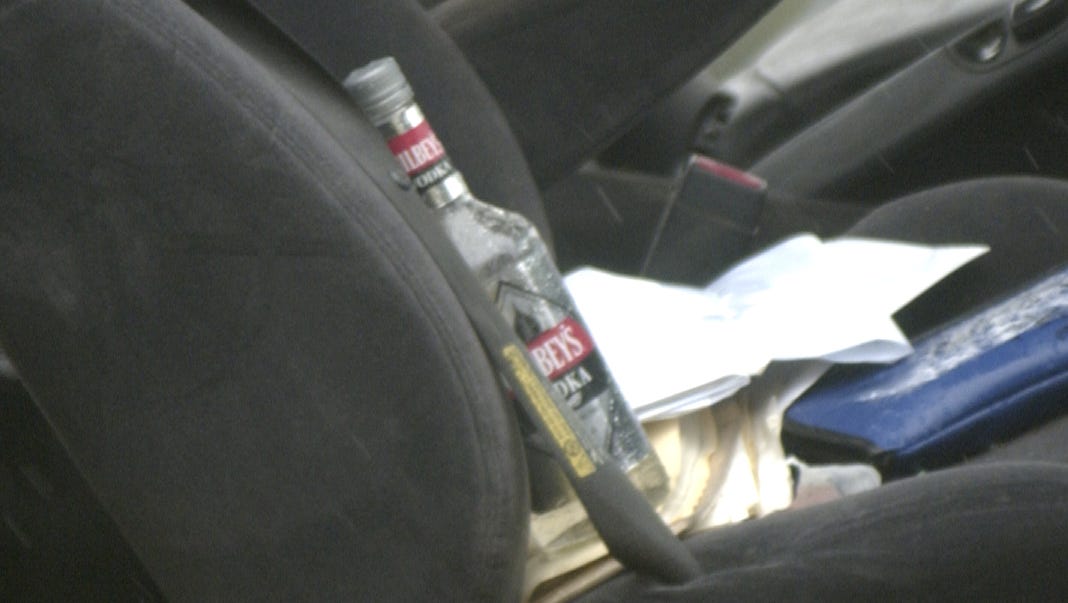When it comes to drinking alcohol in vehicles, Missouri has specific laws that dictate what is permissible and what is not. Understanding these regulations is crucial for anyone who opts to enjoy a drink while on the road, whether as a passenger or a driver.
First and foremost, let’s explore the legality surrounding alcohol consumption in vehicles. Missouri law stipulates that while it is illegal for operators of a vehicle to have an open container of alcohol, passengers do not face the same restrictions. This leads to an intriguing gray area: can passengers truly drink alcohol in a moving car legally? The straightforward answer is yes—passengers are allowed to consume alcohol in a vehicle as long as the driver is not drinking, and the driver possesses no open containers themselves.
But what classifies as an open container? In Missouri, an open container is defined as any bottle, can, or other receptacle that has been opened, broken, or compromised. This means that if the alcohol has been consumed from the container and it remains in the vehicle, it cannot be considered an open container anymore—but be cautious, as this can vary by situation and jurisdiction.
While passengers find themselves in a more lenient position, it’s important to remember that consuming alcohol can still lead to potential issues. For instance, if a passenger becomes excessively intoxicated and causes chaos, the driver may inadvertently become implicated in any criminal activity that ensues. Additionally, if the vehicle were to get pulled over for another reason, law enforcement officers could take note of open containers and decide to investigate further.
In recent years, the conversation around drinking in vehicles has evolved, particularly with the rise of ridesharing services. Many people opt for rideshares, thinking they can indulge more freely. However, caution remains paramount; consuming alcohol while in a rideshare vehicle can still create precarious situations and lead to unruly behavior that could result in being banned from the service or worse.
There are also common misconceptions regarding drinking in vehicles. A prevalent belief is that as long as the car is parked, passengers can drink freely. While this is generally true, local ordinances may impose regulations on public drinking. Thus, it’s wise to check the local laws regarding drinking in parked vehicles, especially in busy urban areas where regulations might differ significantly.
Moreover, if you’re planning a fun day out, you might consider the implications of drinking in a vehicle at special events. Popular events like tailgating or music festivals often see patrons bringing their own beverages along for enjoyment. Missouri allows tailgating in many locations; however, regulations will vary based on the venue. Understanding the specific rules of your event can significantly enhance your experience and keep you within the law.
Public transportation, such as the Metro in St. Louis, has its own set of rules regarding alcohol. In some cases, consuming alcohol may be prohibited entirely, while in others, designated areas may allow it. Always check these regulations before boarding to avoid any unpleasant surprises.
So, what happens if someone violates the open container law? A first offense typically results in a fine. However, if it leads to a DUI or additional charges, the ramifications can be significant. Penalties can range from hefty fines to community service, or even imprisonment in extreme cases. It is imperative to understand that laws may be strictly enforced, especially in busy urban locales or during holidays when law enforcement is on high alert.
It’s also essential to consider some proactive measures if you plan to drink while being a passenger. Having a designated driver or planning alternative transportation can help alleviate any legal risks and ensure that everyone arrives home safely. Moreover, consider packing items such as non-alcoholic beverages as a buffer between drinking and driving—this can be particularly valuable for those who might be uncertain about their limits.
Moreover, along with the legal implications, drinking in a vehicle can have social consequences. Attitudes towards in-car drinking can vary widely by culture and community, and there can be social stigma attached to being visibly intoxicated in public spaces. Being aware of these human elements can lead to more mindful decision-making regarding alcohol consumption.
In conclusion, while Missouri permits passengers to consume alcohol in vehicles, there are intricacies referenced in state law and local regulations that all individuals should be cognizant of before embarking on such activities. Open containers, the implications of public consumption, and the varying rules at events necessitate scrutiny and due diligence. When responsible drinking and legal knowledge converge, one can enjoy the camaraderie of friends or festivities without running afoul of the law. Ultimately, the key takeaway is that while there’s a certain freedom associated with enjoying a drink as a passenger, awareness and caution remain paramount to ensure an enjoyable outing without legal tumult.
